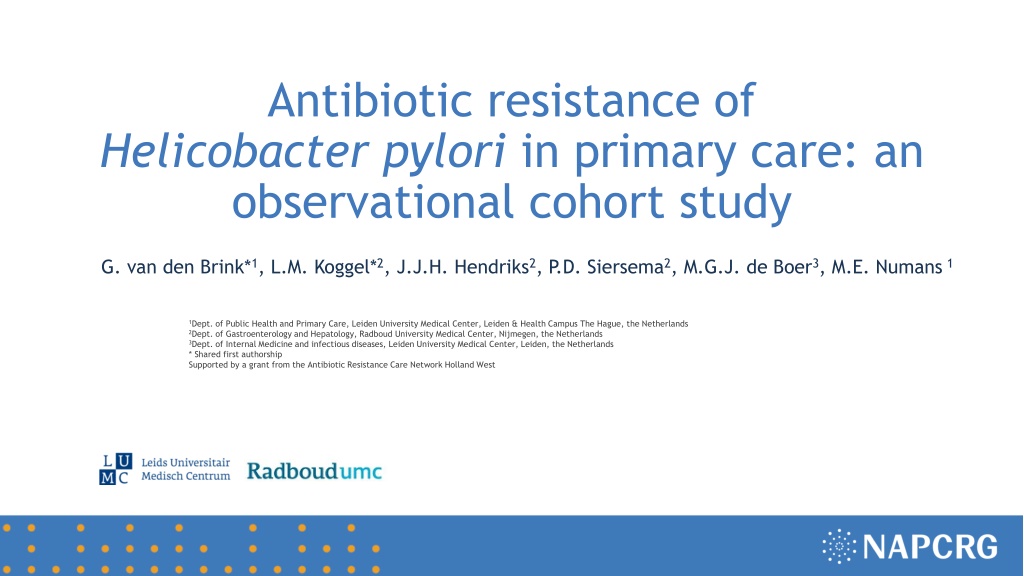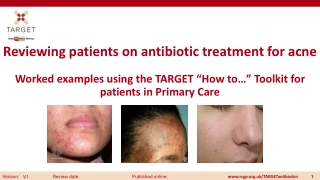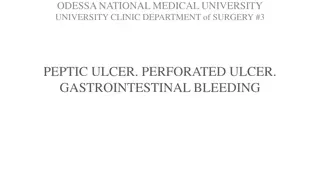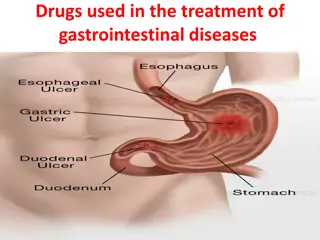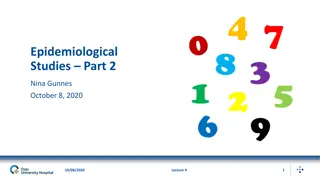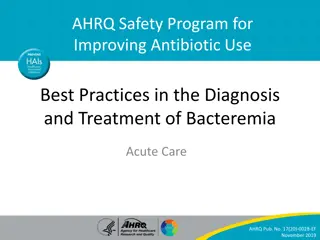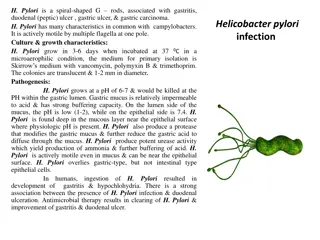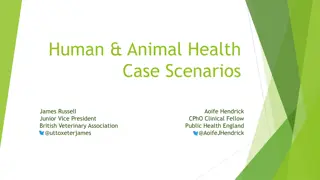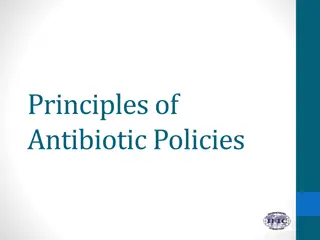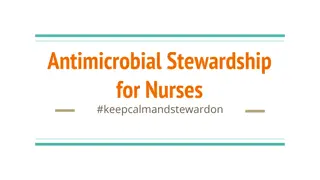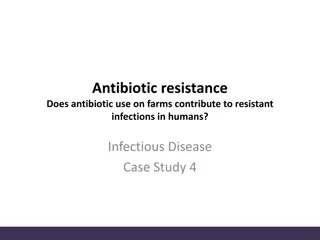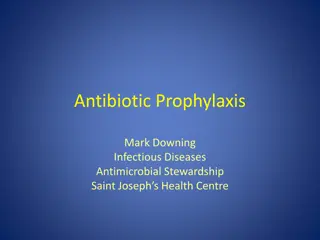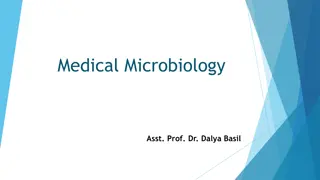Antibiotic Resistance of Helicobacter pylori in Primary Care: Observational Cohort Study
Research focused on Helicobacter pylori eradication success and antibiotic resistance development in primary care settings, revealing an 8% rate of treatment failure leading to a second treatment within 12 months. The study suggests a need to revise treatment guidelines, potentially targeting specific high-risk subgroups for tailored interventions.
Download Presentation

Please find below an Image/Link to download the presentation.
The content on the website is provided AS IS for your information and personal use only. It may not be sold, licensed, or shared on other websites without obtaining consent from the author. Download presentation by click this link. If you encounter any issues during the download, it is possible that the publisher has removed the file from their server.
E N D
Presentation Transcript
Antibiotic resistance of Helicobacter pylori in primary care: an observational cohort study G. van den Brink*1, L.M. Koggel*2, J.J.H. Hendriks2, P.D. Siersema2, M.G.J. de Boer3, M.E. Numans1 1Dept. of Public Health and Primary Care, Leiden University Medical Center, Leiden & Health Campus The Hague, the Netherlands 2Dept. of Gastroenterology and Hepatology, Radboud University Medical Center, Nijmegen, the Netherlands 3Dept. of Internal Medicine and infectious diseases, Leiden University Medical Center, Leiden, the Netherlands * Shared first authorship Supported by a grant from the Antibiotic Resistance Care Network Holland West
The Research Question To determine Helicobacter pylori eradication success over the years in primary care as a proxy measure of the development of antibiotic resistance
Research Design and Methods Observational cohort study in primary care Based on anonymized and coded routine EMR data Domain patients 18-80 years old found 2010-2020 with ICPC-code gastric symptoms or ATC-code acid inhibition Treated with triple eradication therapy Outcome Antibiotic resistance => second eradication treatment <12 months registered
What the Research Found Overall 8% of first H pylori eradication treatments leads to a second treatment within 12 months Slowly increasing trend of H. pylori treatment failure Initial treatment clarithromycin and/or metronidazole
What this means for Clinical Practice Rapidly increasing antibiotic resistance of H pylori reported from secondary care, is partly confirmed in primary care data Consequence might be the need to change guidelines for the first treatment to eradicate H pylori Targeting the guideline change towards subgroups at specific risk for failure of H pylori eradication might be needed (additional risks, pretreatment testing, context factors, therapy compliance)
Add citation if work is published In process
